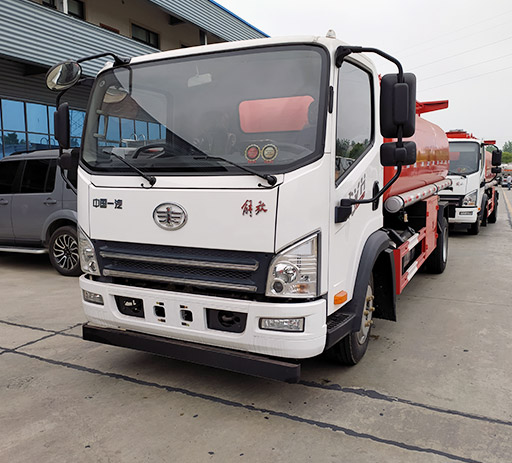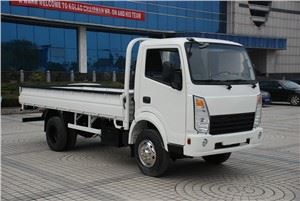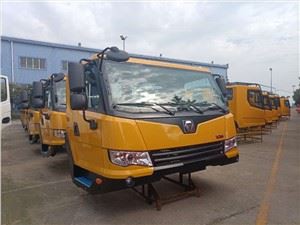Sweepers Truck: The Ultimate Guide to Street Cleaning Vehicles
Introduction
In the hustle and bustle of city life, clean streets are essential for public health, safety, and overall aesthetics. One of the primary vehicles that contribute to this cleanliness is the sweepers truck. These specialized trucks are designed to efficiently clear debris, dirt, and litter from roadways, ensuring that urban areas remain attractive and functional. This comprehensive guide will explore the various types of sweepers trucks, their features, benefits, and practical applications, as well as tips for selecting the right one for specific cleaning needs.
What is a Sweepers Truck?
A sweepers truck is a specialized vehicle equipped with cleaning mechanisms designed to remove debris from roads and other paved surfaces. These trucks vary in size, design, and functionality, ranging from small models suitable for narrow streets to larger trucks capable of handling extensive urban areas.

Types of Sweepers Trucks
Sweepers trucks can generally be categorized into three main types:
1. Truck-Mounted Sweepers
These are constructed by mounting a sweeping apparatus on a truck chassis. They are effective for heavy-duty street cleaning in urban environments.
2. Compact Sweepers
Compact or robotic street sweepers are smaller vehicles designed for tight spaces, such as parking lots and sidewalks. They are versatile and can navigate narrow streets.
3. Self-Contained Sweepers
Self-contained street sweepers are stand-alone machines that do not require a truck for operation. They can be more maneuverable in congested areas.
Key Features of Sweepers Trucks
When considering the purchase or lease of a sweepers truck, it’s essential to keep in mind specific features that enhance its performance:
1. Suction System
The suction system is crucial for effective debris collection. A powerful vacuum ensures that even fine particles are captured, leaving streets cleaner.
2. Brush Configuration
Sweepers trucks typically have rotary brushes. The bristle material and configuration can vary based on the surface being cleaned and the type of debris being removed.
3. Water Spraying System
A water spraying system helps to minimize dust during the cleaning process. This feature is particularly valuable in dry climates or when cleaning construction sites.
4. Waste Collection Hopper
The size and capacity of the waste collection hopper determine how much debris can be removed before needing to be emptied. Larger hoppers can reduce downtime.
5. Maneuverability
Some trucks are designed with a smaller turning radius for enhanced maneuverability in urban environments. This is especially important for compact areas with lots of obstacles.
Benefits of Using Sweepers Trucks
Investing in a sweepers truck provides numerous benefits for municipalities and business districts:
1. Enhanced Public Health
Cleaning streets and public areas helps to reduce health risks associated with debris, litter, and pollutants.
2. Improved Aesthetics
Regular street cleaning contributes to a city’s overall beauty, promoting a positive image for businesses and residents alike.
3. Reduced Environmental Impact

By keeping debris off the streets, sweepers trucks can help prevent pollutants from entering waterways and reduce urban flooding.
4. Increased Safety
Removing debris from roadways minimizes hazards for both vehicles and pedestrians, reducing the likelihood of accidents.
5. Cost Efficiency
Regular street-cleaning schedules using sweepers trucks can extend the life of road infrastructure, reducing maintenance costs in the long run.
Practical Applications of Sweepers Trucks
1. Urban Street Cleaning
Cities often deploy sweepers trucks during off-peak hours to clean major roadways and side streets, ensuring minimal disruption to traffic.
2. Construction Site Clean-Up
After construction or renovation projects, sweepers trucks can effectively remove debris and dust to comply with safety and environmental regulations.
3. Parking Lot Maintenance
Business districts can use sweepers trucks to maintain cleanliness in parking lots, enhancing customer experience and satisfaction.
4. Seasonal Cleaning
During spring or fall, municipalities often rely on sweepers trucks to remove leaves and other seasonal debris, preventing blockages in drainage systems.
How to Choose the Right Sweepers Truck
Selecting the appropriate sweepers truck involves considering several factors:
1. Size and Capacity
The size of the area needing maintenance will dictate whether a compact model or a larger truck is required.
2. Type of Debris
Understanding the types of debris common in your area—whether it be leaves, construction waste, or litter—will influence your choice of the brush configuration and suction systems.
3. Terrain
Consider the types of surfaces and terrain: some sweepers are better suited for rough surfaces, while others excel on smooth pavement.
4. Budget
Establish a budget, taking into account not only the initial purchase price but also the maintenance costs over time.
5. Brand Reputation

Opt for trusted brands known for their reliability and customer service. Researching reviews and testimonials can be beneficial.
Maintenance Tips for Sweepers Trucks
Proper maintenance can prolong the lifespan of a sweepers truck and enhance its performance:
1. Regular Cleaning
Keeping the truck itself clean prevents rust and maintains its value. Regularly wash the exterior and undercarriage.
2. Inspect and Replace Brushes
Brushes should be inspected frequently for wear and tear, ensuring they are replaced as needed for optimal cleaning efficiency.
3. Check Fluids and Filters
Regular checks of oil levels, coolant, and filters are crucial in keeping the machinery running smoothly and avoiding breakdowns.
4. Test Suction and Water Systems
These systems should be tested periodically to ensure they operate effectively and efficiently.
Future Trends in Sweepers Trucks
The industry is evolving with technology, offering exciting prospects:
1. Electric Sweepers
With the push for sustainability, electric sweepers are gaining popularity, including those with lower emissions and noise levels.
2. Smart Technologies
The integration of GPS and IoT technology will allow for real-time monitoring and data collection, optimizing cleaning routes and schedules.
Frequently Asked Questions (FAQ)
1. How often should streets be cleaned using sweepers trucks?
The frequency of street cleaning varies by location, but many urban areas schedule cleaning activities weekly or bi-weekly to maintain cleanliness.
2. Can sweepers trucks operate in bad weather?
Yes, most sweepers trucks are designed to operate in various weather conditions, including light rain and snow, but operations may be limited in severe weather.
3. What is the average lifespan of a sweepers truck?
With proper maintenance, a sweepers truck can last between 10 to 15 years, though this may vary based on usage and care.
4. Are there any environmental benefits to using sweepers trucks?
Yes, sweepers trucks reduce pollution and debris entering waterways, prevent flooding, and lower the need for chemical treatments on roadways.
5. How much does a sweepers truck cost?
The cost of a sweepers truck varies widely depending on the type and features, typically ranging from $100,000 to over $500,000 for advanced models.
6. Do sweepers trucks require special licensing?
Yes, drivers of sweepers trucks may need a commercial driver’s license (CDL), depending on vehicle size and local regulations.
